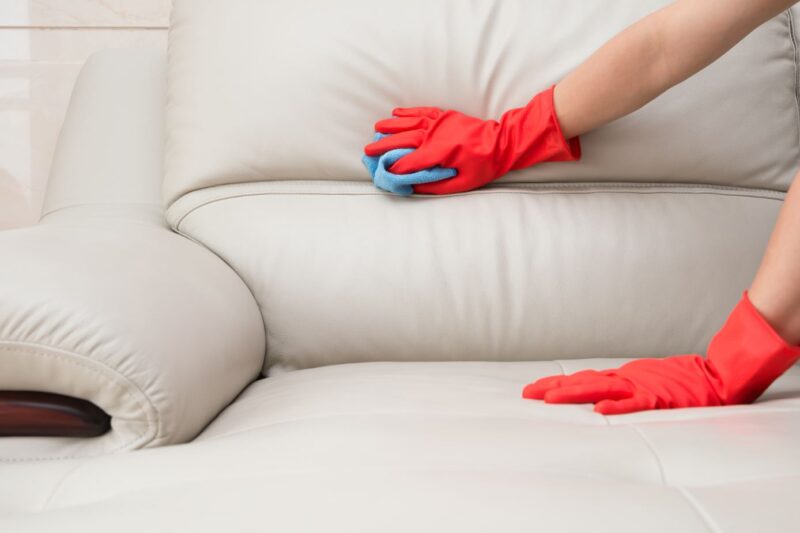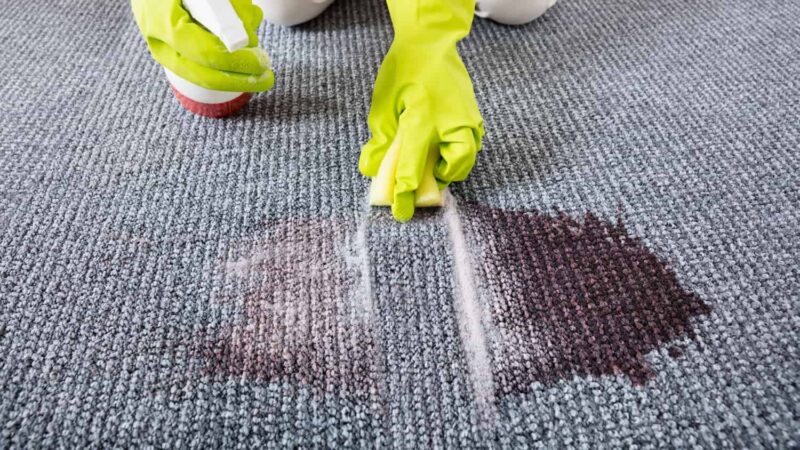As the world becomes more aware of the environmental impact of plastic and waste, many people are looking for ways to reduce their footprint in every part of their lives—including cleaning. The good news is, it’s entirely possible to maintain a clean, sanitary home while minimizing waste and plastic usage. With a little creativity and some simple swaps, you can make your cleaning routine more eco-friendly without sacrificing effectiveness.
Here are some zero-waste cleaning tips to help you reduce plastic and packaging while keeping your home sparkling clean.
1. Switch to Reusable Cleaning Cloths
Instead of using paper towels that get thrown away after a single use, switch to reusable cloths, rags, or microfiber towels. You can repurpose old T-shirts, towels, or sheets into cleaning cloths, which reduces the need for new materials and cuts down on waste. Microfiber cloths are particularly effective for picking up dust, dirt, and germs without the need for harsh chemicals.
Tip: Keep a small basket of reusable cloths in every room for easy access. Simply toss them in the laundry for reuse!
2. DIY Natural Cleaners
Many traditional cleaning products come in plastic bottles and contain chemicals that are harmful to both the environment and your health. Instead of buying packaged cleaners, make your own using simple, natural ingredients like vinegar, baking soda, lemon, and essential oils. These ingredients are cheap, effective, and much better for the planet.
Basic Recipes:
- All-purpose cleaner: Mix equal parts white vinegar and water in a reusable glass spray bottle. Add a few drops of essential oil like tea tree or lavender for a fresh scent.
- Glass cleaner: Combine 1 cup of water, 1 cup of vinegar, and 1 tablespoon of cornstarch in a spray bottle. Shake before use.
- Disinfecting scrub: Mix baking soda with a small amount of water to make a paste. Use this to scrub tough areas like sinks, tubs, or grout.
3. Buy Cleaning Products in Bulk
Instead of purchasing small plastic bottles of cleaning products, buy in bulk. Many eco-friendly stores offer cleaning solutions in bulk, allowing you to refill your own bottles or jars. This eliminates the need for multiple single-use plastic containers. Jim’s Cleaning products are non caustic, non toxic, enzyme based products that are available in 4L sizes to minimise plastic waste.
If bulk purchasing isn’t an option, you can also find cleaning concentrates that require you to add water. These concentrated formulas are usually more eco-friendly and come in much smaller packaging.
Tip: Look for a local refill station or zero-waste store near you that offers cleaning products by weight or in large containers.
4. Use Compostable Scrubbers and Brushes
Many traditional sponges and scrubbing brushes are made of synthetic materials that can take years to decompose. Opt for natural alternatives like wooden brushes with plant-based bristles, loofah sponges, or coconut fiber scrubbers. These alternatives are not only effective at cleaning but are also biodegradable and compostable.
You can find brushes made from bamboo, which is a renewable resource, or make your own scrubbers from natural materials like hemp or cotton. These options clean just as well as plastic-based versions and don’t contribute to landfill waste.
5. Switch to Plastic-Free Laundry Detergent
Laundry detergent comes in plastic bottles that contribute to waste over time. Luckily, there are several zero-waste options available. You can choose detergent sheets, bars, or powders that come in cardboard or recyclable packaging. Some brands even offer refills in glass jars or paper bags, allowing you to reduce plastic waste.
Tip: Look for detergents that are plant-based and biodegradable to ensure they’re better for the environment. Many zero-waste brands also offer eco-friendly fabric softeners made from natural ingredients.
6. Avoid Disposable Cleaning Wipes
While convenient, disposable cleaning wipes are one of the biggest contributors to household plastic waste. These wipes often contain synthetic fibers that aren’t recyclable, and they end up in landfills. Instead of reaching for a disposable wipe, opt for a reusable cleaning cloth or a damp microfiber towel that can be washed and reused.
If you like the convenience of wipes, you can make your own by cutting up old cloth or cotton fabric and soaking them in a homemade cleaning solution. Store them in a reusable container, and just wash and reuse as needed.
7. Use Glass Containers for Storage
Instead of using plastic bottles for storing cleaning solutions or homemade cleaners, opt for glass spray bottles or jars. Glass is a durable, reusable option that won’t leach harmful chemicals into your cleaning products. Plus, it’s easy to clean and recycle when it’s no longer usable.
Look for glass bottles with a pump or spray nozzle to make dispensing easier. You can even repurpose glass jars from food items (like pasta sauce or jams) to store bulk cleaning products or homemade solutions.
8. Recycle and Reuse Packaging
While avoiding packaging altogether is the goal, sometimes it’s inevitable. When you do buy products that come in packaging, make sure to recycle or repurpose it. For example, plastic containers can be reused for organizing cleaning supplies or as planters for small plants. Cardboard packaging can often be recycled or composted, and glass bottles can be reused for storage.
Tip: Always check your local recycling rules to ensure you’re properly disposing of waste. Some areas even have special programs for recycling specific items like plastic caps or containers that may not be accepted in curbside pickup.
9. Air Dry Your Cleaning Tools
Instead of using disposable paper towels to dry off your cleaning tools, air dry your rags, sponges, and mop heads on a drying rack. This reduces the need for single-use items and ensures that your cleaning tools are ready for the next use without creating unnecessary waste.
10. Focus on Preventative Cleaning
One of the best ways to reduce cleaning time and waste is by focusing on preventative cleaning. Instead of waiting for grime to build up, keep surfaces clean with quick daily or weekly maintenance. This includes wiping down counters, cleaning dishes immediately after use, and regularly decluttering to avoid the need for extensive deep cleaning. Keeping things tidy will reduce the need for chemical-heavy cleaners and will also extend the life of your cleaning tools.
Final Thoughts: Small Steps, Big Impact
By incorporating these zero-waste cleaning tips into your routine, you’ll be able to reduce plastic waste while maintaining a clean, healthy home. Whether you’re making your own cleaning solutions, switching to reusable cloths, or buying in bulk, every small change contributes to a more sustainable lifestyle.
It may take a little time to adjust, but with a bit of effort, you can have a sparkling, waste-free home—one that’s not only clean but also kind to the planet.
Jim’s Cleaning have packages



